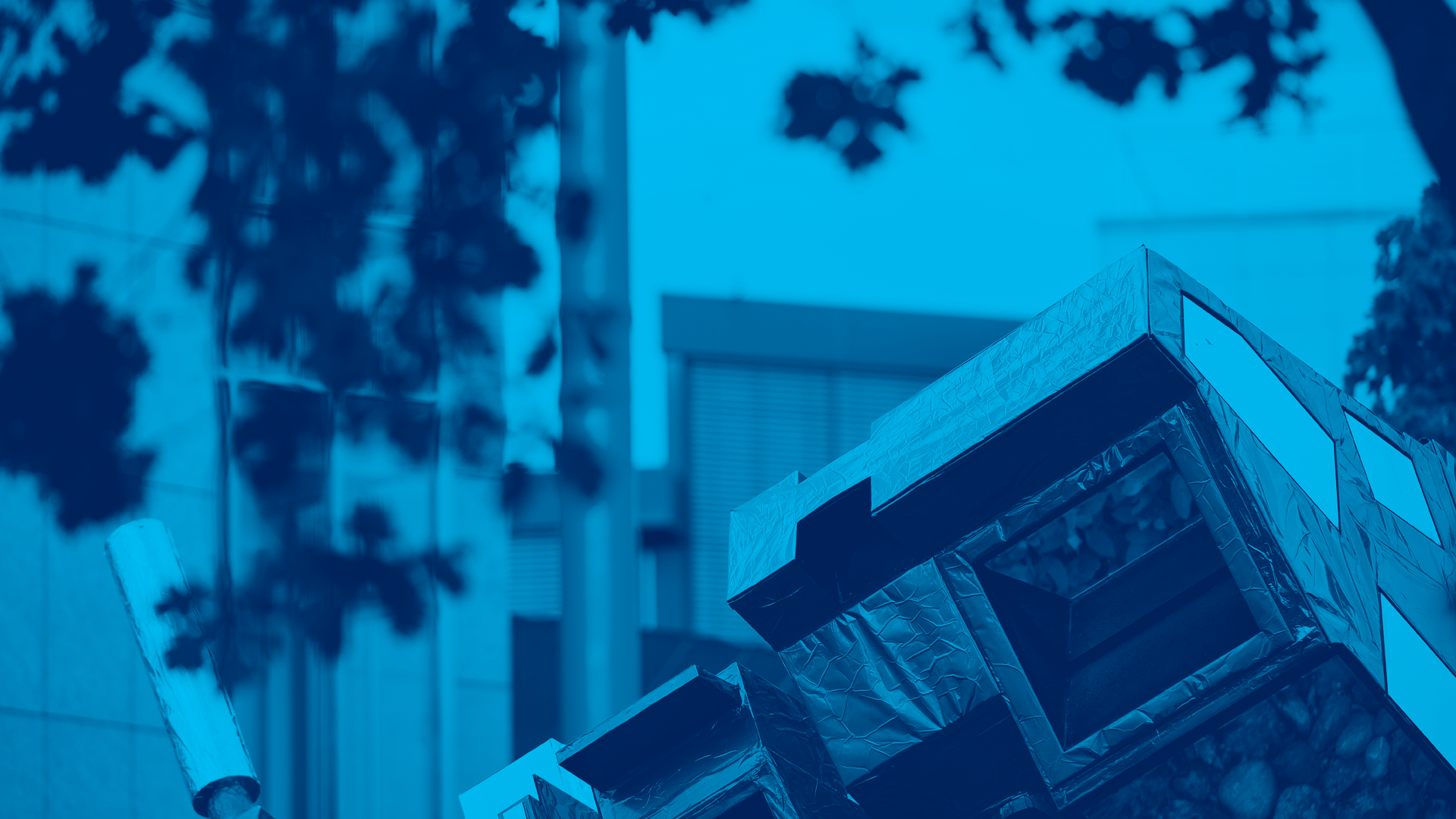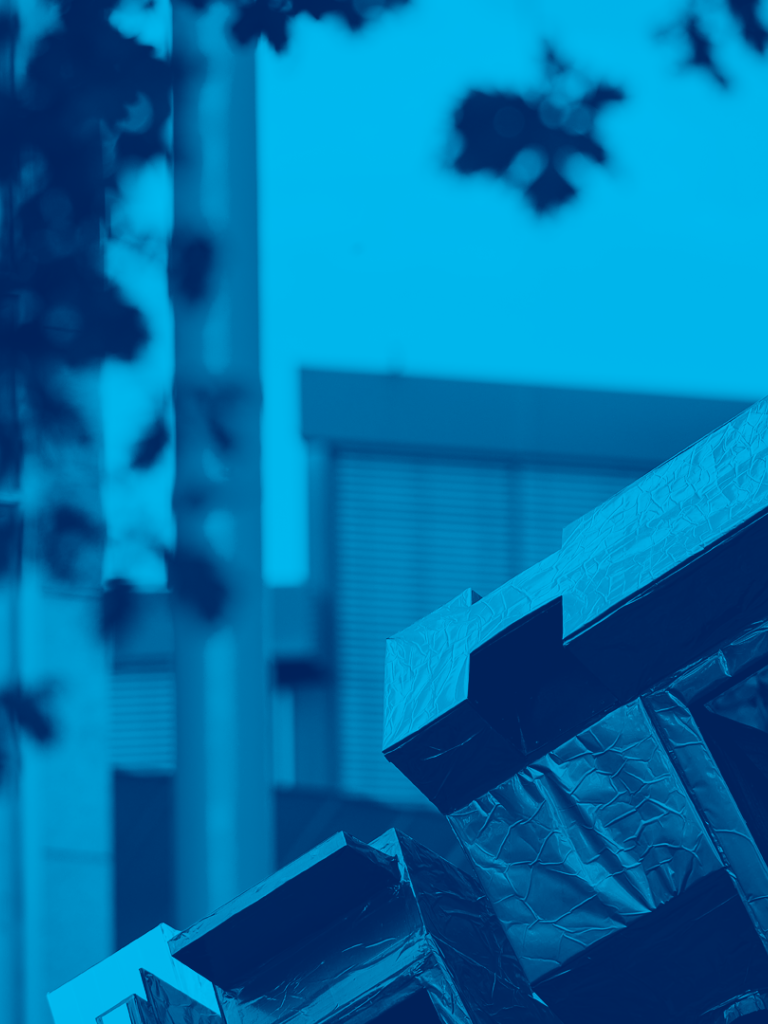
Inside EUMETSAT: meet Gareth and Andrea
Inside EUMETSAT interviews Gareth Williams and Andrea Di Giovanni.


This week, Inside EUMETSAT returns with another very special interview with two more of our outstanding EUMETSAT colleagues: Gareth Williams and Andrea Di Giovanni! Gareth joined EUMETSAT back in 1997, while Andrea is a relative newcomer, having joined the team in October of last year.
19 May 2022
26 March 2021
Inside EUMETSAT is a series of articles for the EUMETSAT Science Blog that will be published over the next weeks and months. Each week, we’ll introduce you to two valued members of our team: one newcomer, joined in the past year, and one senior staff member who has spent years at the organisation.
In a time that’s far from ordinary, we hope to use this opportunity to introduce our readers to some of the diverse and friendly faces they might encounter in the course of a normal day at EUMETSAT. It’s our goal to appreciate and celebrate all the different and talented people who work here. We hope these articles will help you discover—or rediscover—EUMETSAT.


Meet Gareth and Andrea!
What is your current role at EUMETSAT?
Gareth Williams: My current role is Head of Flight Operations. I am responsible for operating all of the satellites in our fleet safely so that they reliably produce the data that supports our services. At the moment, that consists of four Meteosat Second Generation satellites in geostationary orbit and three Metop satellites in polar orbit—all supporting weather forecasting, climate monitoring, and other missions such as radiation environment monitoring, search and rescue, or data collection platforms. We also operate several satellites on behalf of the European Commission—these are two Sentinel-3 satellites for ocean forecasting, environmental monitoring and climate monitoring, and the first in the new series Sentinel-6 ocean altimetry satellites. We are also helping prepare for the coming launch of the next generations of Meteosat and Metop satellites, as well as new Sentinels.
Flight Operations Division (FLO) consists of several teams of engineers that variously specialise in the satellites themselves, in the systems that allow us to plan their operations, monitor and control the satellites, control their orbits and attitudes, and avoid orbital debris. All told, that involves a division of around 90 people, and as head of division it’s my job to be sure that we have the right people to perform satellite operations, keep them safe in orbit, and ensure they reliably transmit their data to the ground.
The satellites are only the first step in the chain of processes that provides the data services to users. Once the data is acquired by the instruments onboard the satellites, it must be downlinked to ground stations in Italy and Romania for Meteosat; Alaska, Spitzbergen and Antarctica for Metop; and Sweden for the Sentinels. Once on the ground, it is processed into a useable format, archived, and then sent on to our users and operational partners around the globe. The key thing about EUMETSAT is that we do this all day, every day, with very high reliability and within the tight time limits necessary for this information to be useful for weather forecasting and oceanography.
Andrea Di Giovanni: I am the new Quality Assurance Manager in the Operations Division (OPS), together with my team we deliver quality assurance support to the operations for all EUMETSAT satellite systems and for the projects led by the OPS Department. One of the interesting characteristics of working as Quality Assurance within the OPS department is that we enjoy full visibility over all OPS projects and operations processes, supporting their design process, documentation, implementation, analysis and, the part I like the most, continual improvement.
We are entrusted with guiding and supporting the investigation and troubleshooting process for anomalies, non-conformities and, most importantly, operational incidents. We facilitate risk management activities and the implementation of lessons learned.
I took over this role from Jim Flewin, who was the first and only OPS QA manager in EUMETSAT for many years. Consequently, there is an expectation that I be able to perform my role at the same level as him as well as to bring a fresh and new perspective to OPS activities.
Do you interact with each other’s teams for work?
GW: Yes! Andrea is the quality assurance lead for Operations, and is therefore an essential part of ensuring that Operations are conducted correctly and effectively. We participate in many of the same processes and meetings, ranging from reporting and coordination to preparing and executing activities. Both Andrea and I participate in the Operations Management Meetings and I invite him to the FLO Divisional Management Meetings as well.
ADG: Yes, as OPS QA Manager, I interact with and support all OPS divisions for any quality matters. As Gareth is taking over the role of Head of FLO division (good luck Gareth!|), and given his experience in the organisation, he was very helpful in introducing me to some of the responsibilities that FLO has within EUMETSAT. We also shared our views on the future developments of the division and its processes.
What has been your biggest challenge during COVID and lockdown?
GW: COVID has been personally and professionally difficult for many people for a variety of reasons. In terms of working, I feel we have been relatively fortunate. EUMETSAT was able to quickly adapt to teleworking, enabling remote access to office as well as operational systems.
I am lucky to have a nice working area at home that allows me to work effectively. For me, the greatest challenge of switching to extensive teleworking has been the loss of spontaneous chats in the corridor or seeing people over a coffee. That has cost us some of those few minutes of relaxation and interaction that help us stay effective during a normal working day, and that may be one aspect that EUMETSAT could improve on, until things start to return to something like normal again.
In the last couple of weeks, there has been a concerted effort by EUMETSAT to try to help people through the emotional stress induced by extended teleworking—often under difficult circumstances. This is good and are to be encouraged—even if engineers usually think they are far too practical to need that kind of support! We should also look to outside the organisation for other ideas that have potential benefit.
ADG: My biggest challenge has been the lack of face to face interaction, which is slowing down my integration into the organisation. Even though I started in October, I still have not been able to meet with all the members of the OPS QA team.
In my role, it is very important to get to know the people working in the OPS department, and indeed in the organisation at all levels. Having an understanding of their needs and personalities is necessary in order to be better able to support the different improvement initiatives. But as we say, safety first!
Thanks to the constant communication and updates, I do feel supported. Also by the initiatives that have been launched to provide emotional support to each of us, as well as the constant communication with my managers who are looking after me, in terms of onboarding but also in terms of integration into a new country, which has been another challenge for myself and my family.
EUMETSAT also provides various different opportunities for human interaction through the available means, and last but not least, the open doors initiative launched in my Division gives everybody the chance to raise their voice and share concerns with the management.
What has your experience of EUMETSAT been during normal, non-pandemic times? Why do you like working here?
GW: My personal experience of EUMETSAT has been very positive. Working for an organisation such as EUMETSAT, whose goals are to support weather forecasting, oceanography and climate research, is a way I can contribute to improving the lives of people across the world.
I joined as a relatively junior engineer on Meteosat and, over my career, I have been able to work on multiple missions in many different and challenging roles, and gained experience preparing and executing activities until I was ready to lead them myself. At EUMETSAT, I have found that I have opportunities to develop professionally, which in other places was not always the case.
I have always found working at EUMETSAT enjoyable. The people that I interact with daily are from all corners of Europe and beyond, from many different backgrounds, bringing different perspectives on many topics—coffee shop conversations are rarely boring!—and yet I feel that we still have a strong sense of community and common purpose. In practical terms, EUMETSAT's headquarters campus is, in terms of layout and amenities, a good working environment, and its location in Darmstadt has a lot to offer.
In short, I like the people I work with, I like the organisation I work for, and I like my job.
What has been your experience of EUMETSAT been like so far? Were you able to come to HQ and meet colleagues face-to-face?
ADG: I was lucky enough to be able to go to the office regularly during my first two working weeks. This allowed me to meet some of my colleagues.
I found EUMETSAT to be an extremely user-oriented organisation. This has encouraged several continuous improvement initiatives for our services and the way we provide them. As quality practitioner, this is like a dreamland of opportunities for me, and even if I know there will be a lot of challenges, I am looking forward to facing them together with everybody.
Of course, I am still in the process of understanding the complexity of the organization, and I am lucky to have the support of my team, my reporting line and of all the colleagues in OPS and PRS, who are all very caring and available to help me when I have doubts or ambiguities.
It's also worth mentioning how different EUMETSAT’s pandemic policies, and with regards to remote work in particular, compared with those of my previous employer. EUMETSAT showed a lot of trust in the professionalism of its employees, giving only general rules governing their on-site presence and the management of different programs, leaving each department to better organise itself in a way that protects the safety of its employees while still being able to achieve its goals. The positive results reached during 2020 show the correctness of this choice.
How did your recruitment take place?
ADG: The recruitment was all virtual, conducted through WebEx. It was a first for me—accepting a job without visiting first, not just the workplace, but also the city I was moving my family to!